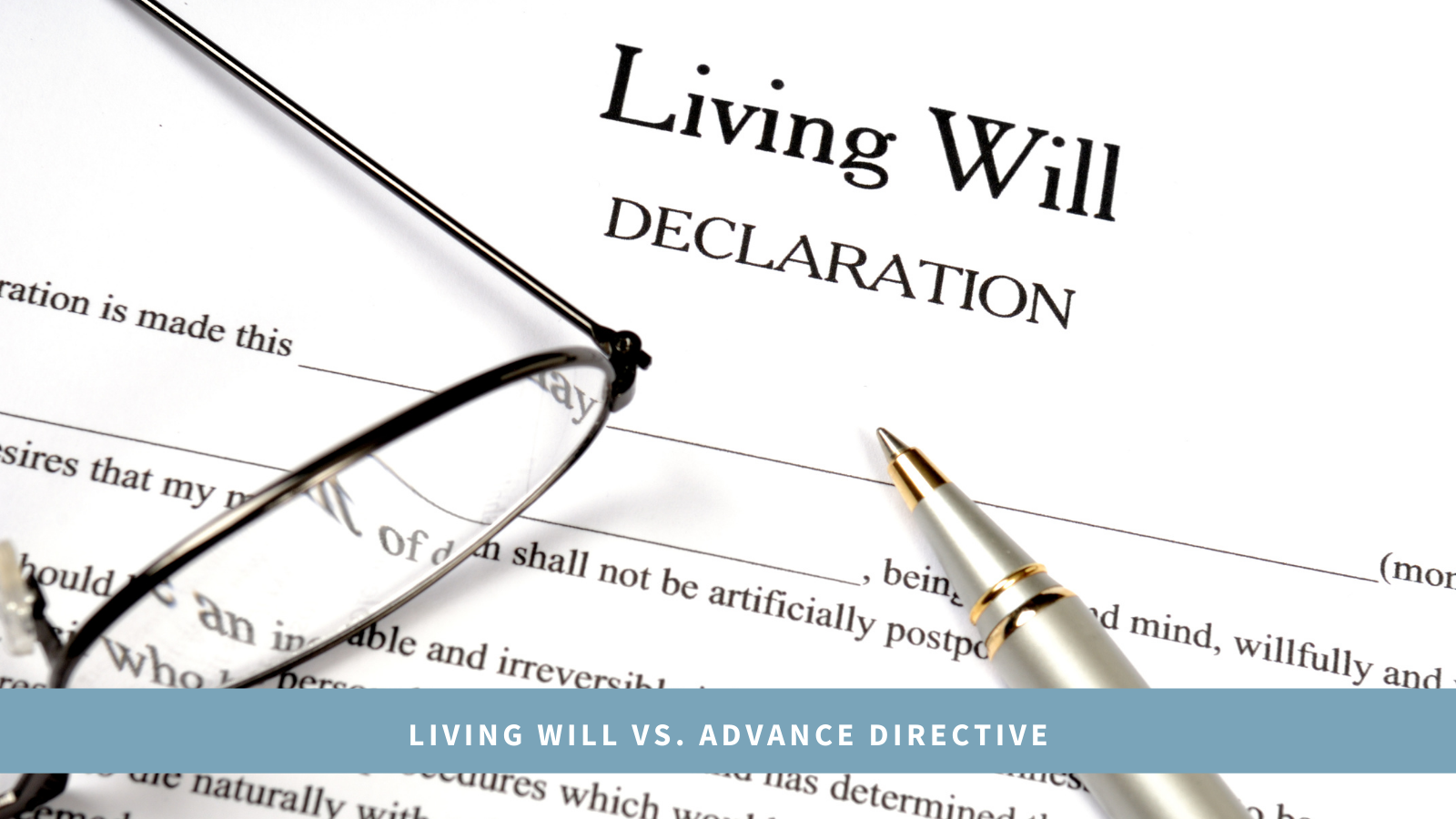
When it comes to estate planning fundamentals, two terms you’ve likely heard are “living will” and “advance directive.”
In a previous blog post from 2019, we covered living wills in Indiana and what Hoosiers needed to know, but let’s refresh our memories as to what this important estate planning document achieves, before diving into its counterpart, the advance directive.

Living Will Basics
- An estate planning document which states your wishes regarding life support
- An important document to possess in the event you are in a persistent vegetative state or irreversible coma and cannot communicate your own wishes
- Addresses:
- use of intravenous food and water
- palliative care: measures taken to reduce pain when one chooses to forgo life-prolonging treatments
- Must be signed by two witnesses. Witnesses must be at least 18 years old; cannot be a spouse, parent, or child; cannot be legally entitled to a portion of your estate; and cannot be the person who signs on your behalf if you are unable to sign on your own.
Advance Directives Basics
- The most common types of advance directives are the living will and the durable power of attorney for health care (sometimes known as the medical power of attorney). In other words, the living will is a type of advance directive.
- Have many formats. Some follow forms outlined in state laws, while others are created by lawyers or even the patients themselves. Whether these documents are valid are decided by each state’s laws. All states (and District of Columbia) have laws about advance directives.
- These documents explain your preferences regarding specific medical treatments, resuscitation efforts and life-sustaining efforts. This may include directions regarding the use of mechanical ventilation or feeding tubes, as well as certain surgeries and medications.
- Other than the living will, another important advance directive includes the Power of Attorney for Health Care (which allows a loved one to appoint someone to speak on his or her behalf regarding health care choices, should they become physically or mentally unable to do so at some future point).
The Power of Attorney for Health Care would cover topics like one’s wishes regarding the use of life-prolonging procedures
Why Advance Directives and Living Wills are Necessities
Both estate planning documents are important when it comes to communicating your wishes.
- Reviewing and updating an advance directive or living will periodically is advised, especially as your health and financial circumstances change. Updates should also be made each and every time you relocate. Each state also has different estate laws, which is why we advise you to always consult a trusted attorney when it comes to these legal matters. You should also review these documents if you make other significant changes in your life, such as getting married or divorced or if your healthcare proxy is unable to continue serving.
Major Takeaways
- CCHA recommends you explore an advance directive and living will as part of your broader estate planning efforts.
- Both an advance directive and living will can be amended and updated as your personal circumstances change. Before creating either document, you should consult with an attorney, especially since each state has their own laws.
- The Estate Planning Group at CCHA offers comprehensive estate planning services including living wills, health care power of attorney documents, financial power of attorney documents, wills, trusts, and well beyond. Contact our estate planning attorneys today, to discuss your estate plan.
Recent Blog Posts
#CCHACares: 2025 Review
Community involvement at Church Church Hittle and Antrim (CCHA Law) has always been more than something we support - it’s…
CCHA Law Reflects on 2025
As we lean into 2026, CCHA Law looks back on a year of growth, achievement, and meaningful impact in 2025…
Justin Hays and Shyann Boyer Named Partners at CCHA Law
Church Church Hittle and Antrim (CCHA Law) is pleased to announce that Justin Hays and Shyann Boyer have been elevated…
